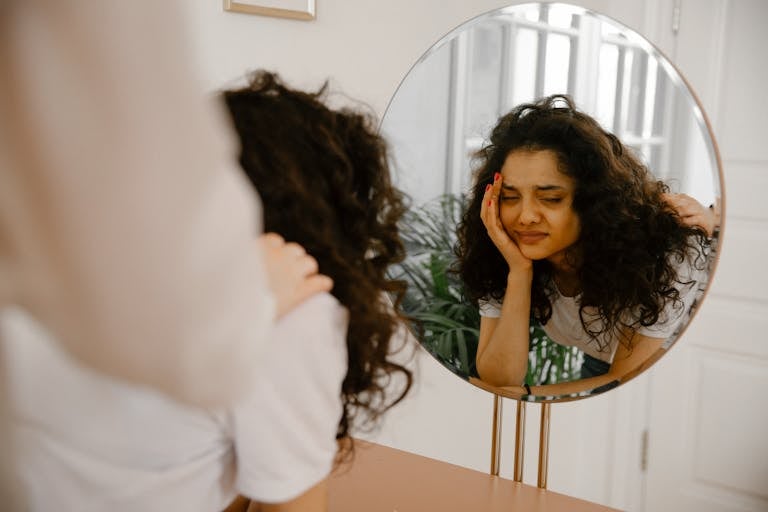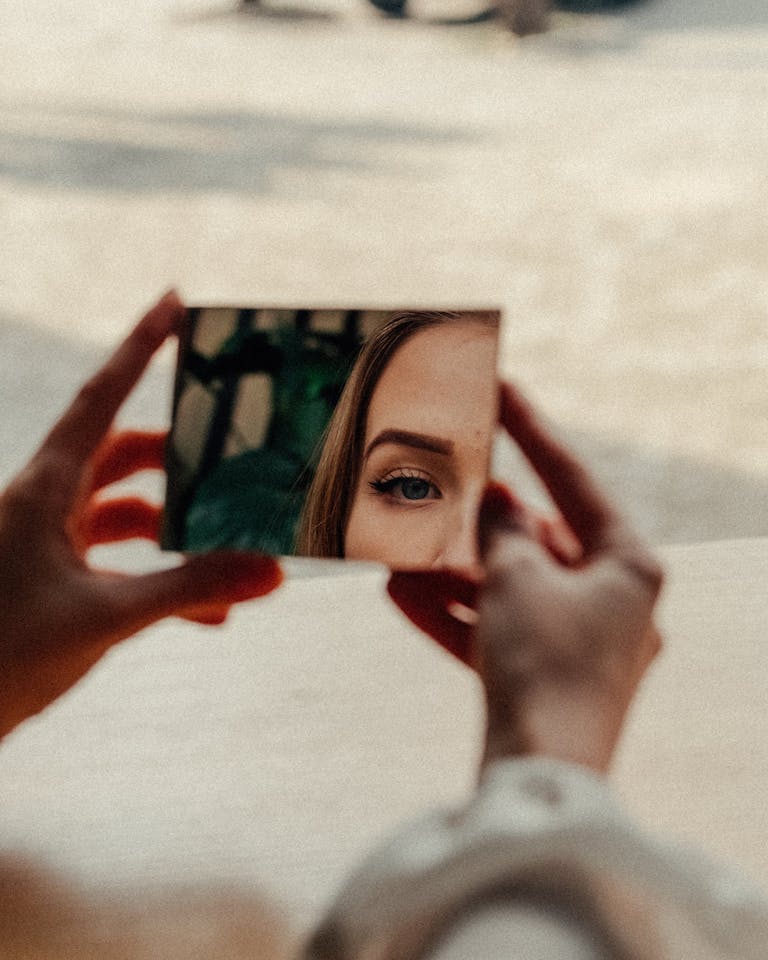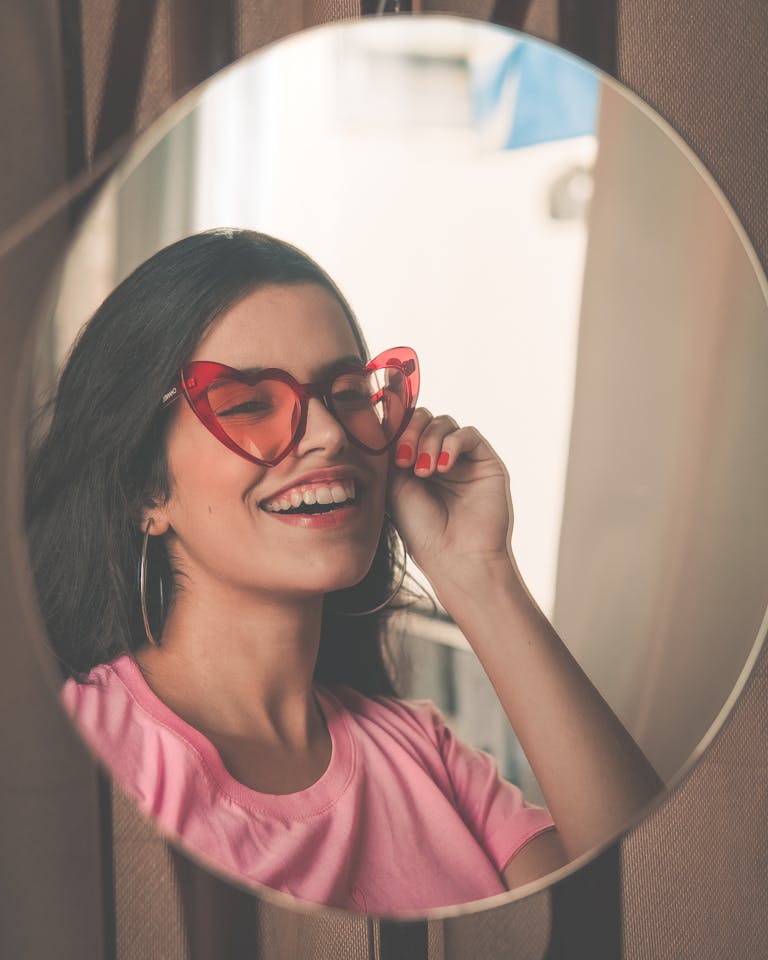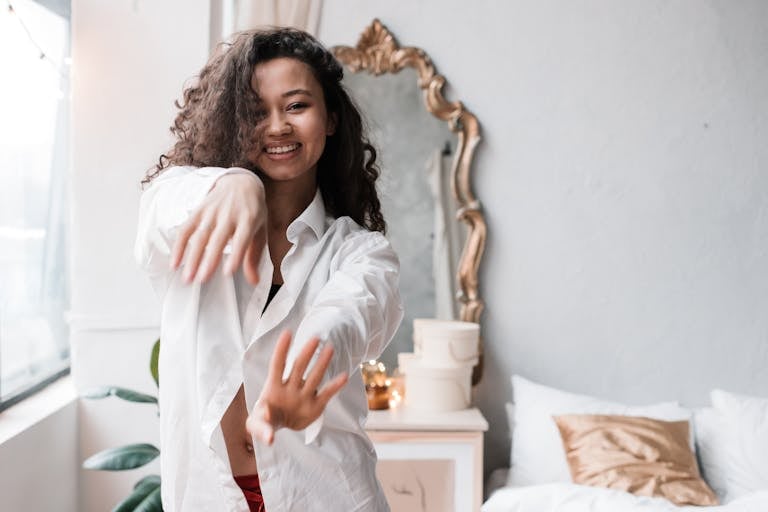How to Become a Better Listener in 5 Easy Ways

Introduction
This post gives you the best 5 tips that you can apply to become a better listener.
Don’t we all love to be listened to? There’s just something about someone paying attention to you and really taking in what you’re saying.
Here are some tips that you can apply.
1. Don’t interrupt
The number 1 rule to becoming a great listener is to ensure that you don’t interrupt.
You might have asked yourself how to be a better listener and not interrupt.
It’s always annoying when you are excited to tell someone something, but they keep interrupting you. I’ve had such experiences in the past and they’re really frustrating lol!
Just let the other person finish what they are saying. This is one of the easiest ways to become a better communicator.
It can be hard to stay focused till the other person finishes to speak. Actually, you might find that you don’t even concentrate because you’re excited to say something.
But, I believe that it is possible to kick this habit out of your life.
You can try to focus on the person’s words and body language. What this will do is catch your attention because you’ll be fully present.
I don’t mean to say that you should remain silent the entire time. Your conversations should flow naturally.
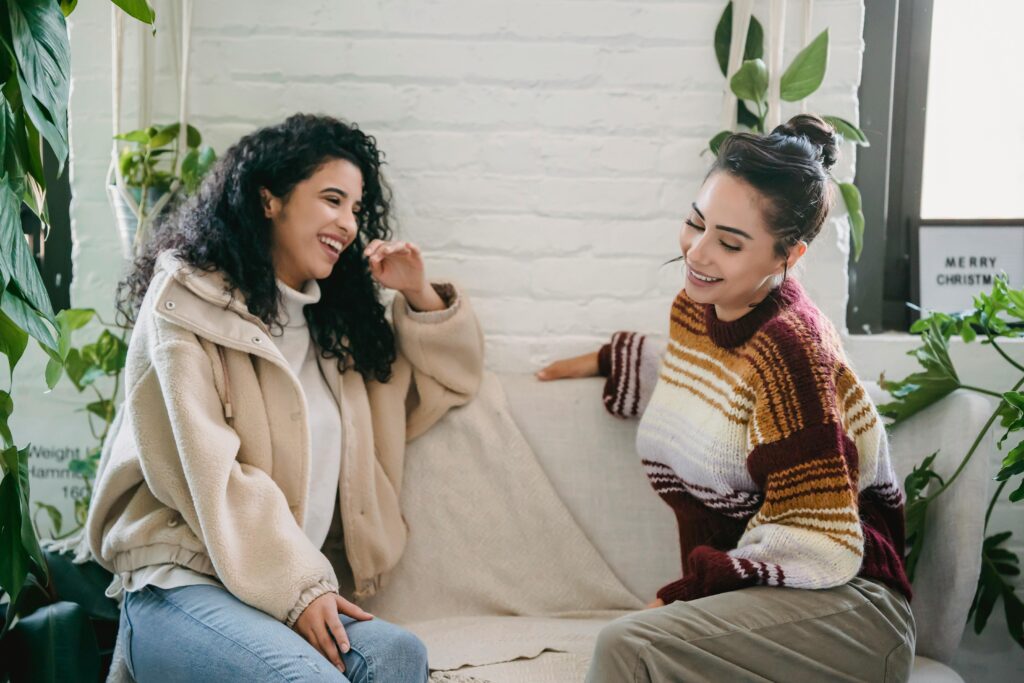
You can check for cues like pauses to add your point. Also, there are times you might have a crucial point to put across and if the speaker isn’t done yet, you can politely ask, may I interject?
This allows respectful conversations, eliminating one-sided engagements.
I remember I was once in one-sided conversations with a colleague. No one would have the chance to talk because they would hog the convos, every time!
Personally, I used to feel devalued because my input was never given space to breathe. I can guarantee you that everyone else in the team felt the same.
I imagine this is how your friends, colleagues, course mates, or partners might feel. This is why it is important to listen better by working on the tendency to interrupt.
2. Active listening
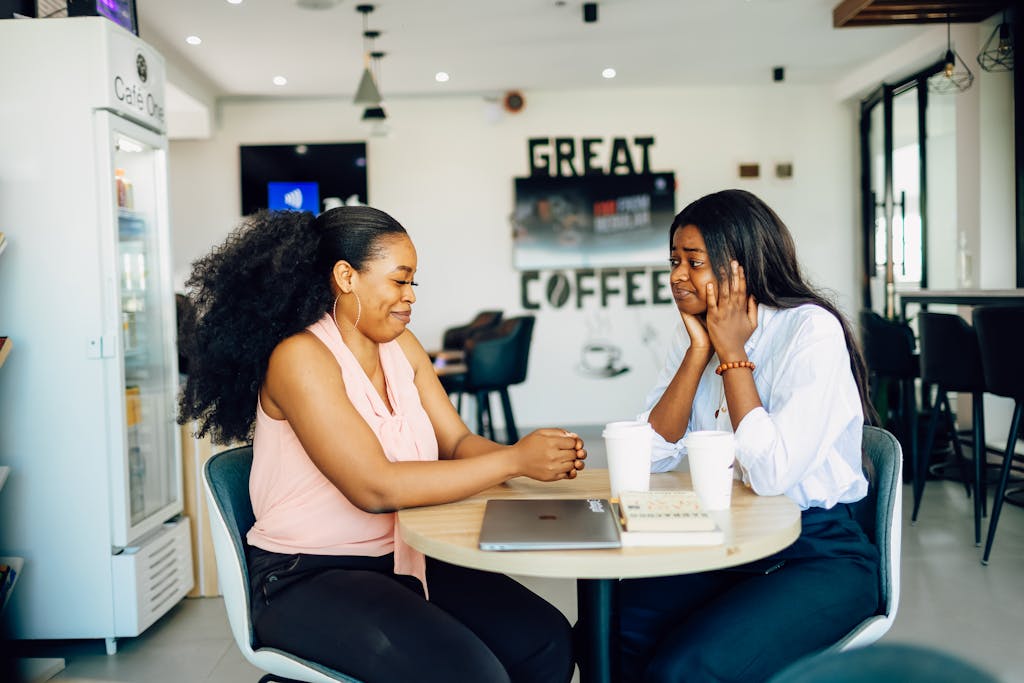
Be present! Active listening is one of the major things that will help you become a better friend and listen more.
This means that you give the person you’re conversing with your full attention.
It will also enrich your conversations because the more you pay attention, the more value you will get.
The thing is, paraphrase and summarize. When you do this, you are ensuring that you don’t get their words out of context. It will also help you understand what they said better.
Additionally, DON’T JUDGE!!
When you are judgmental, you are not actively listening. This is because you have already formed opinions about the speaker.
I mean, you have to respect what they are saying and how they feel. Letting them express themselves is a total gamechanger.
Lastly, when you respond, do so in an appropriate manner. This will be dictated by the context of your conversation.
There is no single or perfect way of doing this. Apply what works best depending on the conversation and vibe.
3. Maintain eye contact
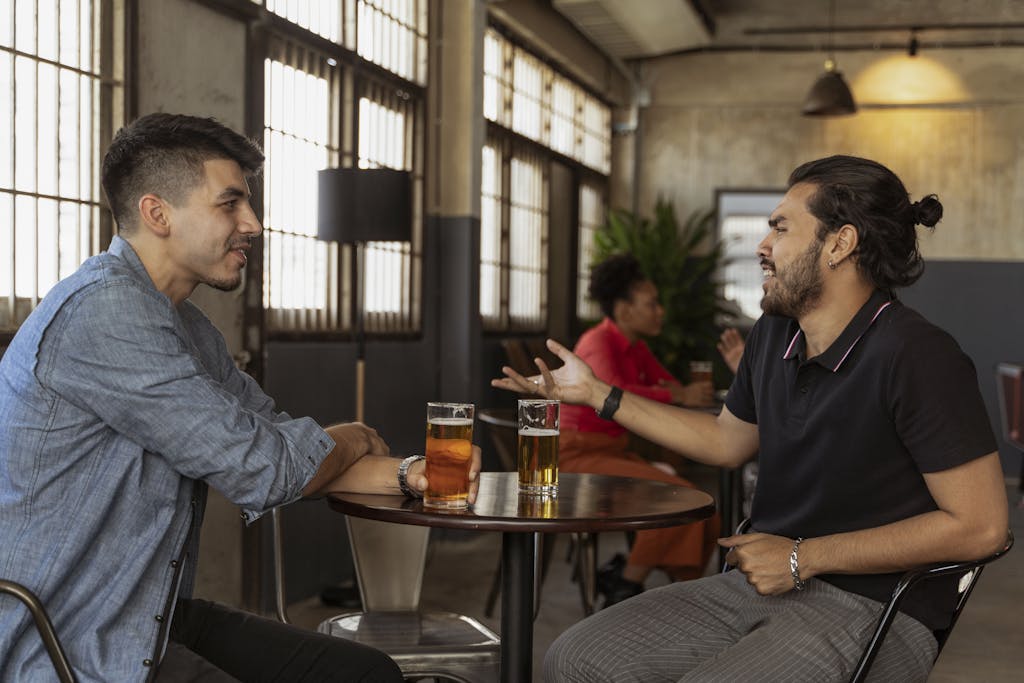
The eyes! They tell if you’re listening. When you look at the speaker, you are more likely to listen.
Don’t stare haha! This might creep them out.
You can focus on them for a few seconds and then slowly glance away, not dart away.
For some reason, this made me laugh. Imagine someone darting their eyes at you (constantly) when you’re speaking, without them even blinking! So hilarious. And weird.
Back to the tip now.
Looking at them for too long even though you’re doing everything right might send the wrong message.
They might think that you’re romantically interested in them (you can do this if this is your intention) or have strong negative feelings against them.
So, finding the right balance is key. You can look at them for about 6 seconds and then glance away.
If you’re anxious about eye contact, you can practice in the mirror before you get a hold of it.
It will help make it feel more natural to you because you will be training your brain.
But there might be times you still feel uncomfortable looking them in the eyes. You can solve this by looking at their forehead. It will give the illusion of eye contact.
The eyes usually show if someone is listening. if someone is looking away when you are talking to them, you’ll obviously lose interest.
Same thing, to improve and become a better listener, this is a skill you 1000% need.
4. Show empathy

To become a better listener, you have to be empathetic. Showing empathy is tied to tip #2, active listening.
You might ask, why is it important to be a good listener?
The answer lies in how it helps you improve your interactions. Showing empathy helps you do just that.
Honestly, imagine fully listening to you, being non-judgmental, and is present! This goes without saying, you will feel better in an instant.
I have always advocated for empathy. It shows our human side because of the care it brings out in us.
Therefore, to be a better communicator, empathy is a must. It is the mother of all these tips.
I’ll be real and reveal that all these tips do not work if there is no empathy. So, practice it and I 100% guarantee that you will become a better listener.
5. Ask meaningful questions
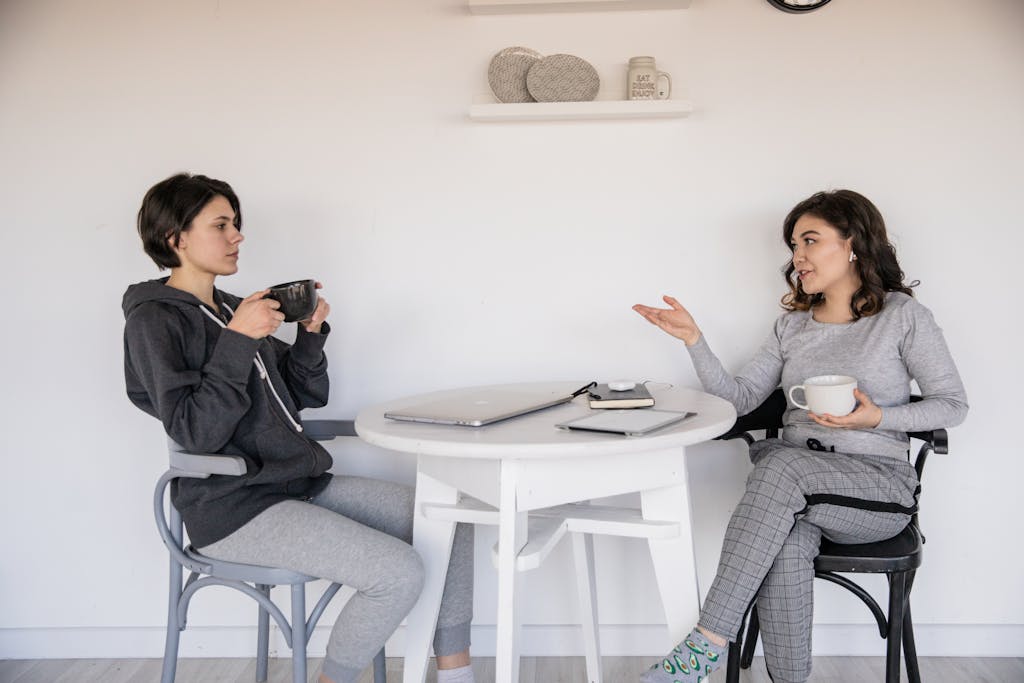
This is another great tip to enhance your listening skills.
It is always good to ask when you don’t understand something. This is great in helping you understand others better.
Through understanding, you’ll develop excellent listening skills. So, ask, ask, ask!
But, don’t just ask questions for the sake of asking lol!
Meaningful questions are mostly open-ended. The encourage the other person to deeply reflect and give a thoughtful answer.
Think of it like this: when you are in a seminar or class, you ask the speaker questions. You ask in a way that will help you understand and is relevant to the topic.
Applying this same logic, reflect on what the conversation is about. Then, craft a question of the area you seek to understand better.
This strategy will help you come up with meaningful questions that add to the conversation.
I highly recommend you try it and give feedback in the comments section at the end of this post on what you think about it.
Also, if you have tried this, you can give a response of how it worked for you. 🙂
Bonus Tip to Become a Better Listener
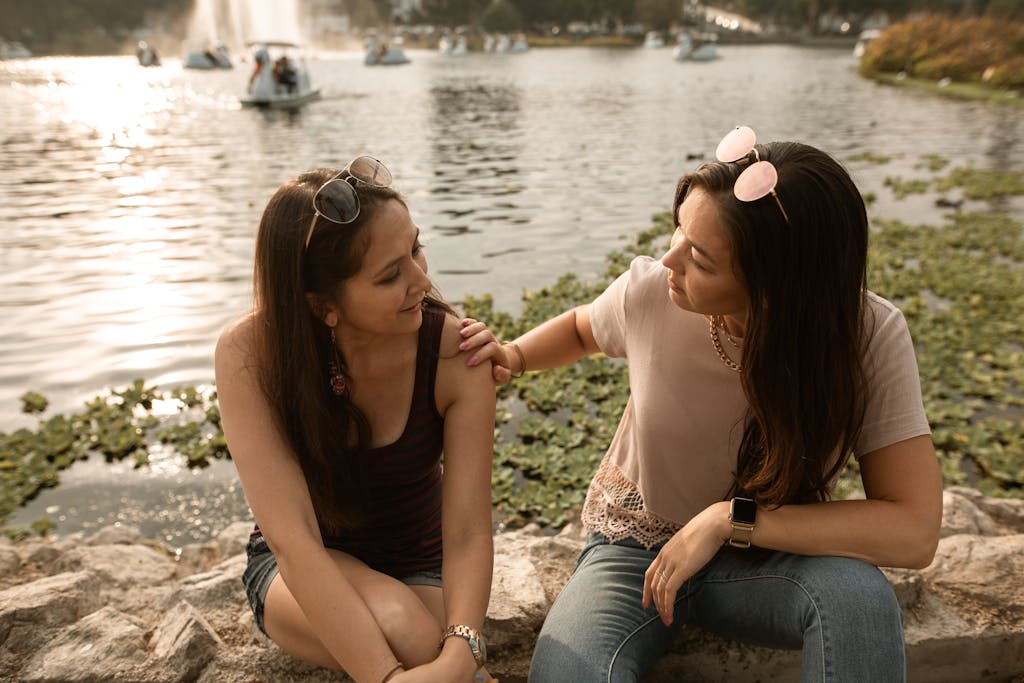
Change is never easy, but when you take small steps, you can attain your goal.
Listening is a skill that one develops over time, especially of you’ve been bad at it.
Another tip that I find to be super helpful is avoiding planning to respond too early.
This sabotages the quality of your response. When you plan too early, you don’t have the full information.
So, you will be answering based on the partial information you have gotten. This will often lead to the other person(s) being frustrated.
What you can do instead is try your best to understand what is being said.
Understanding the other person’s perspective is key. I will also help with the issue of jumping into conclusions early.
In the end, it will show that you are a caring person who values what others have to say during a conversation.
How to be a better listener to friends

Listening is a pillar in friendship. If you are wondering how to be a better listener to friends, then you have come to the right place.
For your friends to listen to you, you have to listen to them. It’s give and take.
The best way to get to this goal is through active listening.
I have written a separate post (linked above) that goes deeper on this. The super easy tips mainly focus on active listening.
So, through them, you can elevate the quality of your connections. You can do this!
What are the three components of active listening?
Let’s call them the three A’s. These three components of active listening are attention, attitude, and adjustment.
First of all, you must be attentive to actively listen. This boils down to self-awareness.
There’s a very big difference to you just hearing what someone said and listening to them.
Listening requires intentional effort and being present in the convo. When someone is speaking, you can process their words. Don’t grow impatient.
Secondly, attitude, attitude, attitude!
Imagine you are in a lecture or meeting at work, and you think it is quite boring. You’ll not be motivated to listen to what is being presented.
So, if you are looking to be a better listener, you have to have the ‘right’ attitude. This means you have that intrinsic motivation to listen because you’re doing it intentionally.
Lastly, adjustment is about being flexible to the mannerisms of the speaker.
If you were listening to your friend and you were both having a great time laughing, you’ll adapt to this. If they suddenly got a call and their mood dropped, you’ll adapt too.
The willingness to adjust according to the situation and mood is key. It helps you become a better listener and communicator.
So, applying the three A’s will simplify how you interact with others.
How to be a better listener with ADHD
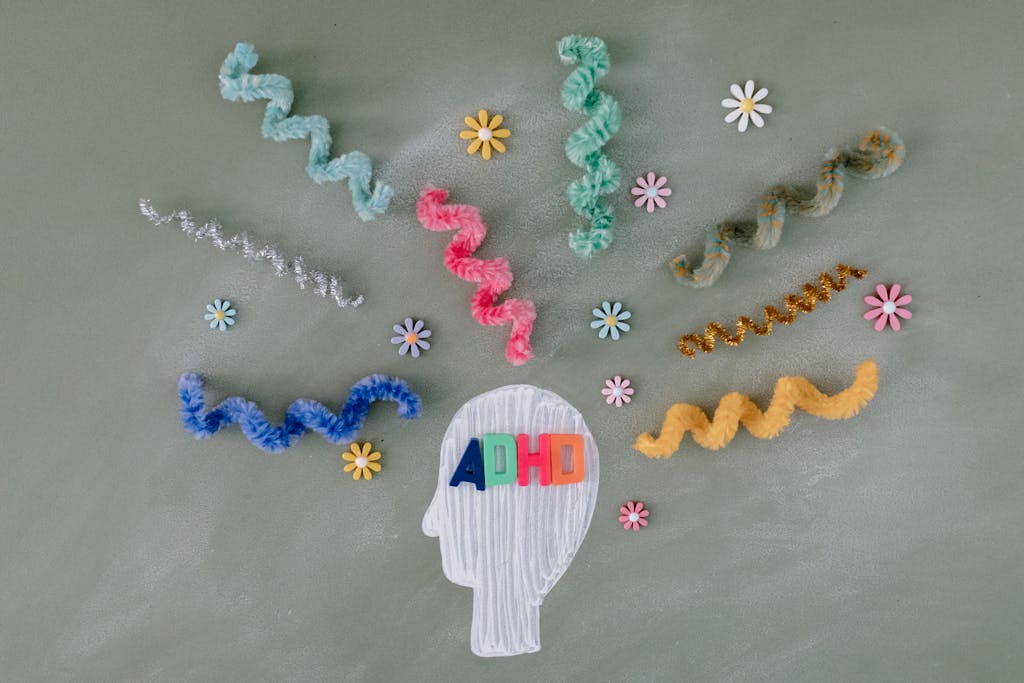
With ADHD, it is sometimes difficult to concentrate on a conversation for long.
To be honest, you might have heard the phrase, ‘Hey, did you hear me?’ is something that happens too often.
Maybe you lost focus when you started thinking whether you locked your house when you left or planning how you’ll manage your weekend. Then all of a sudden you hear, ‘What’s your input?‘
Ugh.
It gets to a point where it becomes cringy, but this is a reality for someone with ADHD.
There is no one-size-fits-all solution because everyone is different. These tips are also not something that works for everyone and that’s okay. xx
One way to enhance your listening is to apply simple but tactful tips that can help you be present.
You can put a pause on doing too many tasks at once. This will help you focus.
But let’s be real here. Stopping what you were doing when someone starts a conversation can be tricky.
So, if you were in the middle of something, it’s totally okay to ask them to let you finish what you were doing first.
Doing this will help support your brain in focusing because you will not be thinking of the unfinished thing you left hanging.
Also, focusing on what they are saying instead of what you will say is important.
This ties back to the BONUS TIP.
Have you ever obsessed over what you’ll say that when it’s finally your turn you don’t have something to say?
This is like when you raise your hand to answer a question and you forget to put it down and then you get called on. Super embarrassing, I know.
So, on with these two powerful tips, and you can learn how to focus better. This will dramatically improve your listening.
Conclusion
That’s all for today! With these tips, you’ll be a great listener in no time.
Find what works best for you and apply it. I wish you all the best! XX

